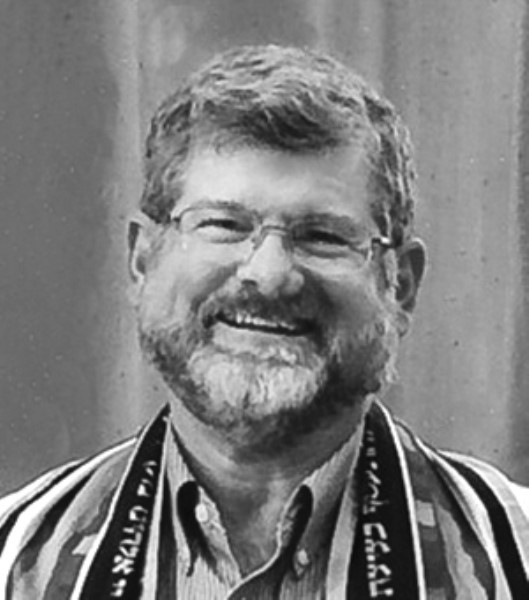Reading the Bible as written for our time
We all know that the Hebrew Bible was written a long time ago. We assume that many of the Bible’s teachings were intended for a different political and social reality than ours. Sometimes, therefore, we are tempted to dismiss biblical teachings we find difficult, or even offensive, because, we say, they were “written for a different time.”
What we may not recognize though, is that the Hebrew Bible was very old already when the rabbis created the Judaism we know today. The rabbis who transformed a national cult of ritual sacrifices into a tradition of study, prayer and doing mitzvot were willing and able to accept the difficult parts of the Bible that must have seemed to them to be “written for a different time.”
How? What did the rabbis do to make the Bible – even the parts written a thousand years before them – relevant to their time?
The rabbis began by assuming that the Hebrew Bible is a sacred text, a gift from God. Therefore, when parts of the Bible seemed to them to be out-of-step with the values and realities of their times, they assumed that there had to be a deeper meaning to be found through interpretation. Rather than simply reject the parts of the Bible we don’t like, we can take a cue from the ancient rabbis and probe for meanings hidden beneath the surface.
This week’s Torah portion (Re’eh), for example, includes a passage that might make us cringe:
You will destroy, completely destroy, all the places where the nations you must dispossess worshipped their gods, on high mountains, in the hills and under every shade tree. You shall tear down their altars, smash their pillars and posts, burn the images of their gods with fire, erase and eradicate their names from that place. (Deuteronomy 12:2-3)
In the context of today’s world, this passage sounds like a call for cultural extermination that reminds us of the Taliban destroying ancient Buddhist statues or the Islamic State’s destruction of medieval mosques. That our own tradition might teach such behavior is distressing to us.
The ancient rabbis did not like it any better than we do. They were quick to point out that the Torah’s laws concerning the destruction of foreign nations were no longer in effect even in their day because the specific nations slated for destruction in the Bible had long ceased to exist (B. Berachot 28a). But because the rabbis assumed that the Torah has something to teach every generation, they sought a deeper meaning.
In the section of the Talmud that deals with idolatry, the rabbis interpreted the doubling of the verb, “destroy, completely destroy,” in the above passage. The Talmud states that we are commanded to destroy idolatry twice. The first part, the easy part, is to remove the physical presence of idolatry. The harder part is to wipe it from our way of thinking (B. Avodah Zara 45b-46a).
This is a teaching that we can take into our lives today. We may not see too many sacrificial altars dedicated to foreign gods in the world today, but idolatry does still exist. Any time we treat something that is not God as if it were a god – whether it is wealth, status, military might or intellectual prowess – we have committed idolatry. The commandment in this week’s Torah portion to destroy places of idolatry is more than an anachronistic statement written “for a different time.” It is a message to us to change the way we think, too.
Think about the things that you worship – things you treat as if they were as important as life itself. Commit yourself to put these things in their proper perspective. Ask yourself: What would it feel like to let go of your prized possessions? How would you see yourself differently if your self-worth was not measured by your status and social station? Would your life change for the better if you did not have the gadgets and gizmos that you depend upon? Isn’t our attachment to such things really just a way of worshipping ourselves? Destroy them and then destroy them again – not with hammers and swords, but in the way we think.
When we consider the biblical text this way – finding personal meaning that transcends the literal and historic meaning of the text – we discover that the text was not written for “a different time.” It was written for us. We learn that what is sacred about our tradition is not our blind obedience to the literal word. It is the tradition’s ability to direct us toward happier, more fulfilling lives. That is the way the ancient rabbis read Torah. We can, too.
There is another lesson, too. When we reflect upon those who only see the literal text on the page – those whose fundamentalist faith insists that it is the only true religion – we realize what a small and self-defeating way it is to live with God. We could even say that such fundamentalism is itself a form of idolatry that treats the literal meaning of the text as a false god and ignores the deeper spiritual meaning.
What irony! Those who destroy ancient artifacts because they believe they are obeying a command against idolatry, are practicing an even greater form of idolatry. By worshipping a text they do not probe to understand, they have become the thing they detest. Is that not always the way of fundamentalism that only sees the surface and ignores the mystery and meaning below?
RABBI JEFFREY GOLDWASSER is the spiritual leader of Temple Sinai in Cranston. He writes the blog “Reb Jeff” at rebjeff.com from which this D’var Torah is reprinted.








